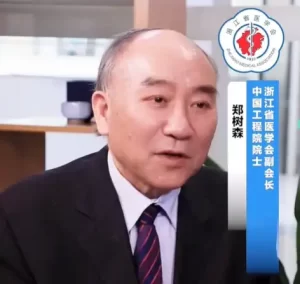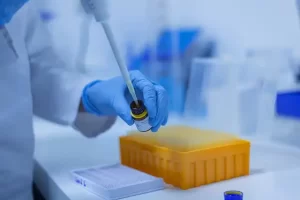China Research Team Faces Allegations of Collective Cancer Due to Reagent Leakage
- Paternal Microbiome Perturbations Impact Offspring Fitness
- New Report Casts Doubt on Maradona’s Cause of Death and Rocks Manslaughter Case
- Chinese academician unable to provide the exact source of liver transplants
- Early Biomarker for Multiple Sclerosis Development Identified Years in Advance
- Aspirin Found Ineffective in Improving Recurrence Risk or Survival Rate of Breast Cancer Patients
- Child Products from Aliexpess and Temu Contain Carcinogens 3026x Over Limit
China Research Team Faces Allegations of Collective Cancer Due to Reagent Leakage
- AstraZeneca Admits for the First Time that its COVID Vaccine Has Blood Clot Side Effects
- Was COVID virus leaked from the Chinese WIV lab?
- HIV Cure Research: New Study Links Viral DNA Levels to Spontaneous Control
- FDA has mandated a top-level black box warning for all marketed CAR-T therapies
- Can people with high blood pressure eat peanuts?
- What is the difference between dopamine and dobutamine?
- How long can the patient live after heart stent surgery?
China Research Team Faces Allegations of Collective Cancer Due to Reagent Leakage
Research Team at Sun Yat-sen Memorial Hospital Faces Allegations of Collective Cancer Due to Reagent Leakage – Hospital Responds.
When we think of laboratory safety, we often think of fire hazards. However, the safety of biological experiments is rarely discussed. In reality, there are many carcinogenic and teratogenic substances in biological experiments, some of which may be toxic and odorous, while others might be non-toxic and odorless. Toxic substances require careful handling, and fume hoods and biosafety cabinets need to be operated correctly. Taking chances is not an option.
While research topics are important, instructions from mentors are crucial, and graduation matters, they all pale in comparison to the importance of one’s life.
The Breast Cancer Department at Sun Yat-sen Memorial Hospital in Zhongshan, China has taken center stage on social media, and the revelations are truly shocking!

Leaked images show that students under the guidance of Professor Su Shicheng at Sun Yat-sen Memorial Hospital (also known as Sun Yat-sen University Sun Yat-sen Memorial Hospital) have collectively developed cancer. Furthermore, reports suggest that “this year, among the breast cancer researchers, six students have developed cancer, with one even having pancreatic cancer that has metastasized to the liver.” Additionally, it has been reported that three of them are Ph.D. students and one is a postdoctoral fellow, all under the age of 30, and they all have rare types of cancer.
This information has also been confirmed by “insiders” on the internet.
According to the leaks, one of the students was diagnosed with an unusual form of pancreatic cancer known as “undifferentiated pancreatic cancer,” which accounts for only about 2% of pancreatic cancers and is more common in older individuals.
Some medical students speculate that it’s highly unusual for multiple students under the same mentor to develop cancer simultaneously, and it may be due to a reagent leakage during experiments. After all, this laboratory uses reagents to create tumor models in animals, and it’s possible that someone might have been inadvertently exposed during this process.
Furthermore, Professor Su and his team have published research in the field of carcinogenic factors multiple times.
Internal sources also claim that in the Breast Cancer Department of the hospital, six students have developed cancer successively, yet the hospital appears to be treating this as a random occurrence.
The leaked images indicate that these students who developed cancer all have relatively rare types of cancer, and the fact that it happened within the same research group is quite telling.
To confirm the authenticity of this situation, relevant individuals have released pathological diagnosis reports of the student with pancreatic cancer that has metastasized to the liver.
A quick search on the hospital’s website shows that Professor Su Shicheng is a professor, chief physician, and researcher, and on the 7th of November, his expert team was conducting outpatient services.

Is the “toxic reagent” causing cancer?
The anomaly and point of contention in this incident lie in the fact that multiple individuals in the same research group developed cancer. The question arises whether there is a causal relationship between their participation in laboratory work and the occurrence of cancer.
In response, the Second Affiliated Hospital of Sun Yat-sen University stated, “In response to public concerns about laboratory safety management, our hospital will continue to uphold safety standards, willingly undergo inspections and supervision by higher authorities, and appreciate netizens for providing opinions and suggestions. Regarding the connection between cancer cases and laboratory or reagent exposure, given the complex factors leading to individual cancer occurrences, we sincerely welcome relevant departments to organize third-party institutions for assessment and investigation.”
Science popularizer Zhuang Shili posted on Weibo, stating that based on the fragmented information available, it is difficult to determine a direct link to the experiments. Most cancer cases are primarily a result of bad luck. However, if it is confirmed that multiple individuals within the same unit developed cancer within a short period, environmental factors should be considered. Environmental factors do not necessarily directly cause cancer, but the purpose of the investigation is to eliminate risks and protect other healthy individuals.
An expert in drug development, analyzing the situation for Interface News, suggested that if an environmental investigation follows, it should assess whether the use of related toxic reagents complies with safety management standards and consider the possibility of other factors. Additionally, the correlation (frequency of occurrence) between these factors and the onset of the disease should be thoroughly investigated.
Is animal experiment PET-CT carcinogenic?
Furthermore, there are suspicions that PET-CT animal experiments may have caused cancer in patients. Zhuang Shili commented on Weibo that, based on his understanding of radiation doses and the process of tumor development, he personally believes this is unlikely. However, in the past few years, there has been confusion in the standardization of PET-CT, and unnecessary, radiation-intensive examinations should be avoided.
According to Huang’s pathology report, the diagnosis is malignant tumor, consistent with SMARCB1/INI-deficient differentiated carcinoma of pancreatic cancer. Zhuang Shili pointed out that the incidence of SMARCB1-deficient pancreatic cancer is very low, and pancreatic cancer itself is not highly prevalent. Less than one out of a hundred pancreatic cancer patients have the SMARCB1 deficiency.
A professor engaged in the discovery, confirmation, and translational medical research of disease-related new targets told Interface News that there are many factors leading to tumor development, and it is essential to examine whether the individuals involved have a family history of cancer. Unless the laboratory work involves strong inducing factors, it is challenging to explain. For instance, aflatoxin-induced liver cancer requires many years of consuming moldy rice to trigger.
Statement from Sun Yat-sen University Sun Yat-sen Memorial Hospita
Reporters also reached out to the Party Committee Office of Sun Yat-sen University Sun Yat-sen Memorial Hospital in Guangdong. The staff responded, stating that they are aware of the situation and that the information is being verified. They are currently conducting further investigations and will release information as it becomes available.
Subsequently, reporters contacted the Guangzhou Municipal Health Commission. The staff replied that this hospital does not fall under their jurisdiction, and they advised contacting Sun Yat-sen University for more information. When contacted, the Party Committee Office of Sun Yat-sen University replied that media inquiries require approval. As of the time of this report, no response has been received.
On the early morning of November 8th, Sun Yat-sen University Sun Yat-sen Memorial Hospital issued a statement, which reads as follows:
Statement
On November 7, 2023, our hospital became aware of the circulation of information on the internet regarding “suspected cases of cancer among members of Sun Yat-sen Memorial Hospital’s Breast Surgery team due to the influence of the experimental environment and reagents.” The hospital promptly initiated an investigation and found the following preliminary information: Among individuals who have worked or studied in the laboratory of the Breast Tumor Center at our hospital in recent years, three have been diagnosed with cancer. Two of them are currently employed as doctors in our Breast Surgery department, while the third is not an employee or student of our hospital; he was an out-of-town trainee and has returned to his original workplace. No current students working in this laboratory have developed cancer. The specific cases are as follows:
– Ms. Huang, a female, studied at our hospital from 2017 to 2022 while pursuing a Ph.D. degree. She worked in the laboratory of the Breast Tumor Center during this time. After graduating with a Ph.D. in July 2022, she joined our Breast Surgery department for clinical work. In October 2023, she was diagnosed with pancreatic cancer and underwent surgery. Her condition is currently stable.
– Mr. Liu, a male, studied at our hospital from 2013 to 2018 while pursuing a Ph.D. degree. He also worked in the laboratory of the Breast Tumor Center during this period. After completing his Ph.D. in August 2018, he joined our Breast Surgery department for clinical work. In June 2023, he was diagnosed with synovial sarcoma and underwent surgery. He has since recovered well.
Our hospital has been closely monitoring the health of these two employees after their cancer diagnoses and has organized expert consultations and visits to provide support. There is also a third individual who was an out-of-town doctoral graduate. He trained at our hospital for one year in 2021 while working in the laboratory of the Breast Tumor Center. He completed his training and left Guangzhou in April 2022. In 2023, he was diagnosed with breast cancer in his local area.
The Breast Tumor Center laboratory was established in 2009 and has trained over 200 students. Since its inception, the laboratory has adhered to strict, standardized management procedures and has provided safety training and guidelines for all laboratory personnel.
Regarding concerns about laboratory safety, our hospital will continue to uphold the highest safety standards and willingly subject ourselves to inspection and supervision by relevant authorities. We also appreciate the suggestions and feedback from the public. In response to concerns associating cancer diagnoses with laboratory or reagent exposure, we welcome third-party organizations to conduct epidemiological investigations, as the causes of individual cancer cases are exceedingly complex.
Finally, we thank all sectors of society for their concern and attention to the health of healthcare workers.
Sun Yat-sen University Sun Yat-sen Memorial Hospital
November 8, 2023
However, after the release of the statement by Sun Yat-sen University, many netizens have questioned the announcement for downplaying the issue and being vague on crucial points.
Some netizens have pointed out that, according to the official response, in 2023, three individuals were diagnosed with cancer (one with pancreatic cancer in October 2023, one with synovial sarcoma in June 2023, and one with breast cancer in 2023). Did the paths of these three individuals intersect in terms of their daily lives? Did they spend time in similar locations? Did they work on similar research topics? Did they use the same equipment, reagents, or experimental animals? These questions could be addressed through an epidemiological investigation conducted by a reputable third-party organization.
Additionally, cancer diagnoses typically take time, often several months. It is essential to monitor whether individuals closely associated with these three cases are also diagnosed with cancer in the future, and this information should be included in the investigation.
As for the ongoing developments, we will continue to keep a close watch.
China Research Team Faces Allegations of Collective Cancer Due to Reagent Leakage
Reference:
https://k.internet.cn/article_1887344341_707e96d504001f2pe.html?from=health
(source:internettx3gQRLTyZBpuEY5hSZyhw, reference only)
Disclaimer of medicaltrend.org
Important Note: The information provided is for informational purposes only and should not be considered as medical advice.



